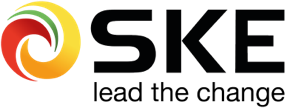Huawei FusionSolar Solutions for Individuals
Huawei aims to turn households into
power self-suppliers
The telecom equipment supplier is a big player in solar energy and wants to increasingly address private individuals in addition to companies.
Huawei is known to most people for its smartphones and as a provider of entire mobile networks. However, the Chinese company is also firmly rooted in the solar energy industry. This fits well with its core business. The big commonality between telecom and photovoltaics is inverters. "The radio modules on transmission towers are supplied with direct current," explains Erich Manzer, Vice President of Huawei Technologies Austria. The conversion of alternating current into direct current and vice versa is also enormously important for photovoltaics.
Inverter
"We are the world market leader in inverters," says Manzer. The hardware is used all over the world for large solar power plants, on company roofs, but also in the private sector. Huawei wants to increasingly address the latter with new products. "In other countries, Huawei is already strongly represented in the home sector," says Manzer. In Austria, however, not yet.
The main reason for this was that Huawei inverters for private use were designed as single-phase systems. In Austria, however, three phases are common when feeding photovoltaic power into the grid. A corresponding product was launched on the market just over a year ago. In addition, Huawei offers software and apps for control and home storage.
Modular batteries
Home batteries are modular, making home PV systems easy to expand. "As a customer, I can initially just buy an inverter and then control how much power I use at what time," Manzer says. "If I see that I'm feeding a lot of power into the grid, I can add a storage module and keep power on hand for later use." Especially in the summer months, you can run your household very self-sufficiently in this way.
One advantage of combining one's own PV systems with a home storage system is a certain degree of protection against power outages. If such a blackout occurs, a battery at home can seamlessly take over the supply of activated household appliances. But installing home storage also has benefits for the general public, he said. "The more photovoltaic systems are built in the course of the energy transition, the greater the challenge for transmission system operators to control the power peaks. If a lot of surplus photovoltaic power is stored, you can achieve a better balance in the power grid."
Artificial intelligence
In the software for controlling and monitoring PV systems, Huawei relies heavily on artificial intelligence. It should make it possible, for example, to quickly detect faulty PV cells. The company wants to make its own products largely maintenance-free. Inverters, for example, use "free cooling" instead of mechanical fans, because these are a frequent source of faults, explains Manzer.
The fanless cooling also makes it possible to design inverters that are particularly water-resistant. The company advertises fish farms as a possible application. "They're out by the sea and you have to constantly check how the fish are doing and what condition the nets are in. Cameras that record 4K videos are also used for this," says Manzer. 5G modules are used to transmit the data in real time. PV panels take care of the energy supply. The sealing of the inverters also allows them to be used in desert areas, where sandstorms can occur.
Operation of mobile networks
For Huawei, photovoltaics come full circle when they are used to operate mobile networks. This idea is being implemented, for example, on the T-Center in Vienna, the headquarters of the mobile phone company Magenta. "The building owner built a PV system on the roof together with Wien Energie. The inverters come from Huawei. The electricity is used to operate the Magenta data center."
Even though Huawei has not yet achieved greater prominence in the field of private photovoltaic systems, it is important for Manzer to emphasize: "We didn't just jump on the PV bandwagon at some point, but have been developing in the field over many years." In recent months, he says, Huawei has been intensively expanding its distribution network. "Electricians must have a good feeling that our products are easy to install and that few complaints come back afterwards." According to Manzer, this has been achieved. Now it is a matter of convincing private users of the company's own PV products, he said.
